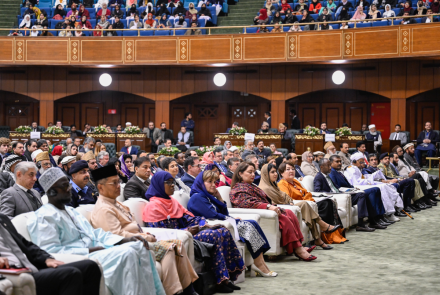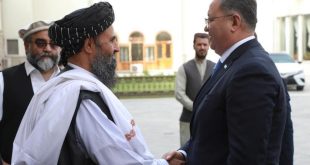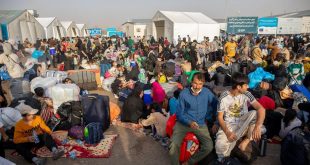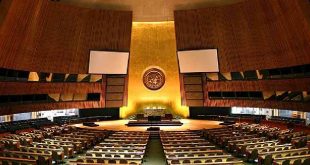KABUL — In a significant resolution adopted at the Islamic countries’ conference in Pakistan’s capital, Islamabad, participants have called for urgent action on the education of women, emphasizing its importance not only as a religious obligation but also as a critical societal need.
The 17-article resolution, which received broad support from representatives of over 40 Islamic nations and global organizations, highlights the fundamental right of girls to receive an education. The document stresses that this right is not only enshrined in Islamic teachings but is also backed by international conventions and national laws.
One of the key points in the resolution reads, “Emphasizing that girls’ education is not only a religious obligation but also an urgent social necessity. It is a fundamental right safeguarded by divine laws, mandated by Islamic teachings, reinforced by international charters, and well-established by national constitutions.”
Article five of the resolution goes a step further, condemning ideologies, norms, and cultural patterns that obstruct girls’ education. Participants warn against the misuse of religious principles to justify exclusionary policies and actions that prevent women from accessing education. The resolution states, “Such actions represent a grave misuse of religious principles to legitimize policies of deprivation and exclusion.”
In support of the resolution, Fatima, a teacher from a local school, said, “From an Islamic perspective, there is no prohibition against acquiring knowledge. Schools must reopen so that girls can continue their education and achieve their aspirations.”
Ayesha, a university student, echoed these sentiments, urging the Islamic Emirate to adhere to the teachings in the resolution. “The demand of all Afghan women and girls, like me, from the Islamic Emirate is to consider this part of Islamic rulings and work to implement it in the country by reopening schools and universities for girls,” she said.
Although the Islamic Emirate of Afghanistan did not participate in the conference, its spokesperson, Zabihullah Mujahid, recently underscored the significance of both religious and modern education in a video statement. “Do not oppose education anywhere,” he said, emphasizing that religious and scientific knowledge are both essential for societal progress.
Jannat Faheem Chakari, a political analyst, stressed that the authorities in Afghanistan must take immediate steps to provide women with the opportunity to pursue education and careers. “Education is a religious duty and a social obligation that must be considered by the current authorities,” she said.
In a related development, former Afghan President Hamid Karzai expressed support for the conference’s resolution, recognizing the critical need for girls’ education. In a statement, his office declared: “Hamid Karzai considers girls’ education an undeniable and fundamental right and deems its prohibition against national interests and the welfare of the country as unjustifiable.”
Despite the notable discussions and resolutions, the Islamic Emirate has yet to officially comment on the conference’s outcomes. The absence of representatives from the group at the conference remains a point of contention for many advocates for women’s rights.
The two-day conference concluded with a call for renewed efforts to ensure that girls and women across the Islamic world can access education and fulfill their potential, reaffirming the importance of gender equality in the pursuit of a just society.
 Afghanistan Times
Afghanistan Times




